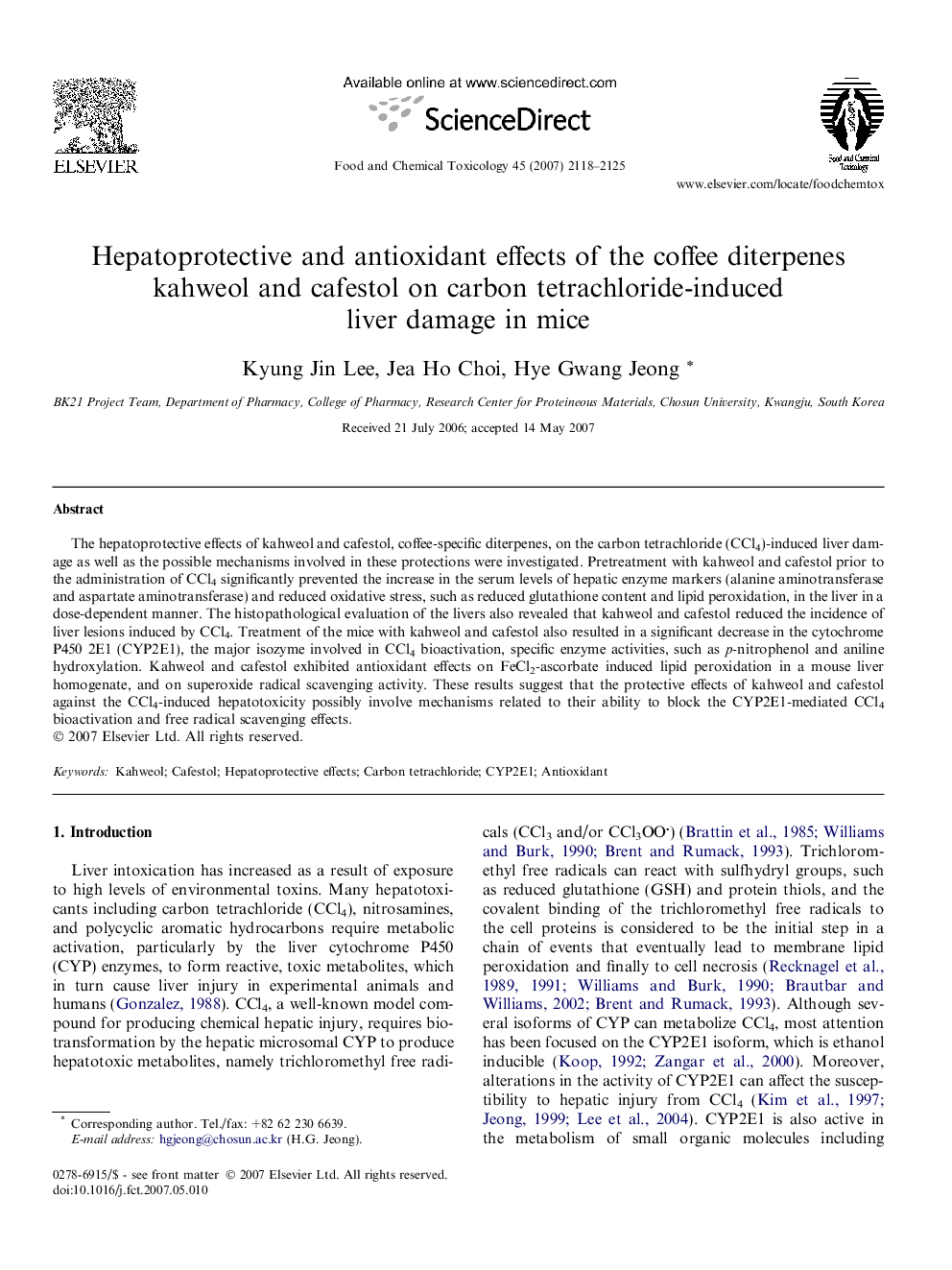| Article ID | Journal | Published Year | Pages | File Type |
|---|---|---|---|---|
| 2587991 | Food and Chemical Toxicology | 2007 | 8 Pages |
The hepatoprotective effects of kahweol and cafestol, coffee-specific diterpenes, on the carbon tetrachloride (CCl4)-induced liver damage as well as the possible mechanisms involved in these protections were investigated. Pretreatment with kahweol and cafestol prior to the administration of CCl4 significantly prevented the increase in the serum levels of hepatic enzyme markers (alanine aminotransferase and aspartate aminotransferase) and reduced oxidative stress, such as reduced glutathione content and lipid peroxidation, in the liver in a dose-dependent manner. The histopathological evaluation of the livers also revealed that kahweol and cafestol reduced the incidence of liver lesions induced by CCl4. Treatment of the mice with kahweol and cafestol also resulted in a significant decrease in the cytochrome P450 2E1 (CYP2E1), the major isozyme involved in CCl4 bioactivation, specific enzyme activities, such as p-nitrophenol and aniline hydroxylation. Kahweol and cafestol exhibited antioxidant effects on FeCl2-ascorbate induced lipid peroxidation in a mouse liver homogenate, and on superoxide radical scavenging activity. These results suggest that the protective effects of kahweol and cafestol against the CCl4-induced hepatotoxicity possibly involve mechanisms related to their ability to block the CYP2E1-mediated CCl4 bioactivation and free radical scavenging effects.
